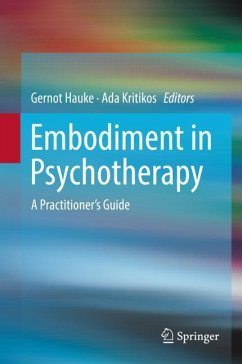This groundbreaking clinical guide explores the theory behind embodiment in psychotherapy, the science that underlies its methods, and how this knowledge can offer greater depth to clinical practice. Experts across the cognitive and behavioral sciences analyze the complex roles of the body in helping create the self and convey agency, and the essential cognitive, emotional, and behavioral processes expressed in movement, gestures, and facial expressions. Diverse techniques are shown bridging gaps between emotional and bodily awareness and verbal and nonverbal communication to reinforce self-regulation, navigate social relationships, and support the therapeutic bond. These practical guidelines demonstrate the versatility of embodiment work in use with individuals, couples, and groups in addressing a wide range of emotional, interpersonal, and somatic concerns.
Among the topics covered:
· Embodiment as an organizing principle.
· Generating body focus: the gate to embodied work and emotional awareness.
· Embodiment of social interaction: our place in the world around us.
· Resource activation: bringing values into the flesh.
· Therapeutic alliance: grounding interaction in space.
· The power of embodying values in work place teams.
Expanding on while strengthening traditional theory and methods, Embodiment in Psychotherapy brings new directions in healing to researchers, clinicians, and psychotherapists of all schools in psychiatry, counseling, coaching, and social work, as well as psychology students, trainers, managers, and supervisors.
Among the topics covered:
· Embodiment as an organizing principle.
· Generating body focus: the gate to embodied work and emotional awareness.
· Embodiment of social interaction: our place in the world around us.
· Resource activation: bringing values into the flesh.
· Therapeutic alliance: grounding interaction in space.
· The power of embodying values in work place teams.
Expanding on while strengthening traditional theory and methods, Embodiment in Psychotherapy brings new directions in healing to researchers, clinicians, and psychotherapists of all schools in psychiatry, counseling, coaching, and social work, as well as psychology students, trainers, managers, and supervisors.








